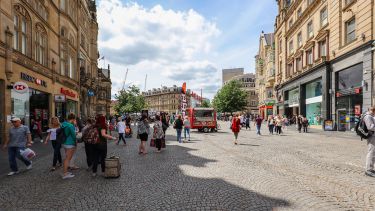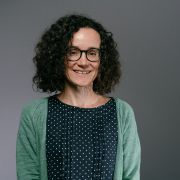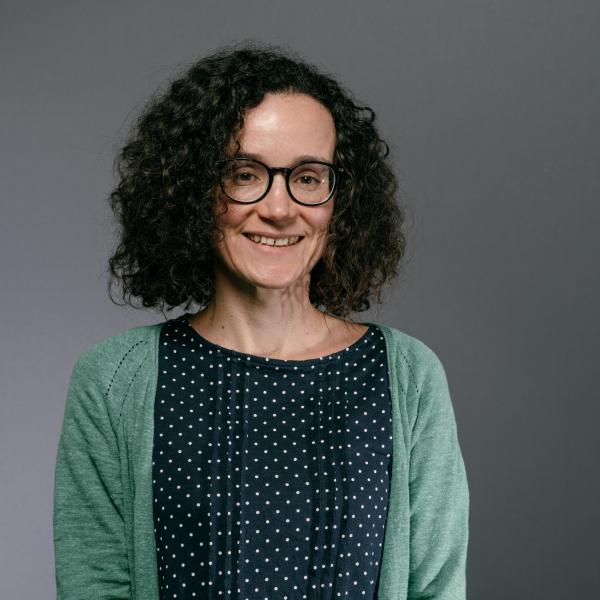Urban citizenship and informality: new dynamics in the context of global urbanisation
We are a research network based at the universities of Sheffield, York and Leeds, examining the relationship between informality and citizenship, supported by studentships exploring a truly global set of case studies.

Principal investigator
Co-investigators
- Paul Gready (York)
- Anna Mdee (Leeds)
- Indrajit Roy (York)
- Andrew Wallace (Leeds)
- Rowland Atkinson (Sheffield)
Context
In the context of global urbanisation, citizenship is a dominant theme, with citizenship struggles providing a focal point for rights claims, responding to political and economic crises.
Politically, the rise of populism has accompanied narratives of exclusion, challenging notions of citizenship with cities as sites of contestation.
Economically, neoliberalisation has exacerbated rural-urban migration, class differentiation, and elite self-segregation and resource appropriation (Mdee 2017).
These intersecting trends create new forms of exclusion and inequality, and may entrench or expand patterns of informality - ‘grey spaces’ that may weaken state control and formal democracy (Yiftachel 2015), but offer economic and political innovation.
Such developments create challenges and opportunities for urban citizenship futures, as these in-between spaces articulate narratives imagining a different relationship between urban citizens and state (Lombard 2013; Roy 2017).
Project focus
Understanding increasingly globalised political, economic and urban dynamics requires a globally comparative, interdisciplinary perspective, offered by three related studentships supporting the network’s focus on new developments at the interface of urban citizenship and informality.
Broadening the usual development-oriented focus, three innovative comparative projects will explore these phenomena through foregrounding key actors, respectively, the state, marginalised communities, and elites:
- Urban informality, public authorities and citizenship (Lombard, Roy)
- Rights, citizenship and informality (Gready, Wallace)
- Urban elites, informality and inequality (Mdee, Atkinson)
United by their focus on urban informality and citizenship, they will offer conceptual and empirical insights into relationships between these phenomena and actors involved in diverse cities.
Each studentship entails direct (north-south) comparison, while the network enables indirect (north-north, south-south) comparison across projects, supported by network members’ experience in Africa, Asia, Latin America and Europe.
Methodologically, this broadens comparative urbanism’s scope, complicating notions of ‘north/south’, while capitalising on the White Rose regional location with ‘local’ cases (Manchester, Leeds).
Network
The network spans politics, international development, human rights and urban studies. It also involves partnership with two key UK-based NGOs in the field of human rights, development and citizenship, with diverse geographical remits.
The Overseas Development Institute (ODI) is the UK’s leading independent global thinktank on international development, with presence in 50 countries, offering access to an unsurpassed network of development practitioners and researchers.
Just Fair (established 2011) monitors and advocates the protection of economic and social rights in the UK, working with local, national and international stakeholders, and can offer access to data and networks relating to rights in the UK.
Contact
Contact the principal investigator
Funder
The network is funded by the White Rose DTP Network Award.
References
- Lombard, M. (2013) Struggling, suffering, hoping, waiting: Perceptions of temporality in two informal neighbourhoods in Mexico. Environment & Planning D: Society and Space, 31(5), 813-829.
- Mdee, A. (2017) Disaggregating orders of water scarcity-the politics of nexus in the Wami-Ruvu River Basin, Tanzania. Water Alternatives, 10(1), 100.
- Roy, I. (2017) Emancipation as social equality: subaltern politics in contemporary India. FOCAAL: Journal of Global and Historical Anthropology, 76, 15-30.
- Yiftachel, O. (2015) Epilogue – From ‘Gray Space’ to Equal ‘Metrozenship’? Reflections on Urban Citizenship. IJURR, 39(4), 726-737.


